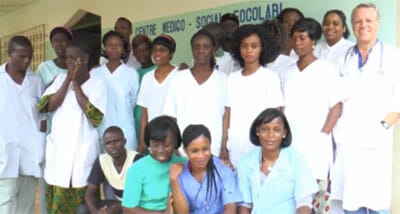
Oct 12, 2015 | Focolare Worldwide
 «During these years I think I alone visited 50,000 patients,» says Dr. A. Carlo Montaguti, a focolarino doctor and Director of the Social Medical Centre of the little Focolare town in Man, Ivory Coast. «I was a doctor in my country, Italy, but my practice was not so intense. Those who preceded me when there was still the war, told me before my departure: Carlo, if you don’t treat them, no one else will.» The patients arrived also in the night. The health records were compiled in the apatam (shed) in front of the hospital, and then they entered for the medical checkup by any of the three doctors of the centre, one of which is Muslim. The doctors prescribed the lab tests and got the results in about two hours. In a second visit, the diagnosis was done and the treatment prescribed. In the span of a morning one manages to get everything done. «It is not usual to have a lab for analysis in such a small centre in the suburbs,» Carlo continues; «I worked for four years without a lab and it was really difficult.» Luc Dro, head of the laboratory, explained that being in a tropical zone, there is great need for studies on parasites that cause malaria and other endemic diseases, but the lab is able to perform a complete check-up. The centre also has a small pharmacy, where over a 100,000 consultations were registered. «We do all that is possible to put the patients at the core of our work – says Dr. Alavo Bazini – and this explains the great influx. It does not suffice to say “the medicines are free of charge,” if the people are not satisfied. This is where the centre’s originality lies.» When possible, there is also a cultural mediator who translates into the local tongues. «We also have the internet and wi-fi connection – explained Dr. Eliassa Sow – In this way we can do research work and cooperate with other doctors from afar.» Dr. Montaguti continues «I came in 2004 – when the centre consisted of two tiny rooms for visits and one for medications. The people have appreciated our work especially because during the war in 2002, in the most difficult moments when all the foreigners were leaving the country, we decided to stay on, and risk our lives. They understood that we were there for them and this generated their trust. At times it came about that on a Monday, after the weekend break, the patients said: ”Doctor, I tried to endure in order to come to you.” If their situation was not too serious, they preferred to wait another day and suffer a bit more, to be able to come here!» One of the strong points of the centre is also the healthcare team which is involved in the entire care process. When the political-military crisis ended and the situation in the region calmed down, the term of the centre was extended and in 2008 we moved into a new facility. «It seemed like a dream – Carlo recalls – but after two years with the influx of patients – more than 80 a day plus their relatives – quite a crowd! – the old structure could not take any more. And we continued to dream.» And so last 10 October, the new Focolare Social Medical Centre, opened last 7 September, was inaugurated in Man, a stone’s throw from Mariapolis Victoria. It is a modern architecture for a facility of over 1,000 sq. m, with the addition of new services: 15 beds, a dentist’s studio, a physiotherapy room, and new diagnostics equipment (ultrasound scans, hemoglobin electrophoresis and microbiology). In the last days the nutrition centre, previously located in the district of Libreville, was completed and transferred to cure infantile malnutrition..
«During these years I think I alone visited 50,000 patients,» says Dr. A. Carlo Montaguti, a focolarino doctor and Director of the Social Medical Centre of the little Focolare town in Man, Ivory Coast. «I was a doctor in my country, Italy, but my practice was not so intense. Those who preceded me when there was still the war, told me before my departure: Carlo, if you don’t treat them, no one else will.» The patients arrived also in the night. The health records were compiled in the apatam (shed) in front of the hospital, and then they entered for the medical checkup by any of the three doctors of the centre, one of which is Muslim. The doctors prescribed the lab tests and got the results in about two hours. In a second visit, the diagnosis was done and the treatment prescribed. In the span of a morning one manages to get everything done. «It is not usual to have a lab for analysis in such a small centre in the suburbs,» Carlo continues; «I worked for four years without a lab and it was really difficult.» Luc Dro, head of the laboratory, explained that being in a tropical zone, there is great need for studies on parasites that cause malaria and other endemic diseases, but the lab is able to perform a complete check-up. The centre also has a small pharmacy, where over a 100,000 consultations were registered. «We do all that is possible to put the patients at the core of our work – says Dr. Alavo Bazini – and this explains the great influx. It does not suffice to say “the medicines are free of charge,” if the people are not satisfied. This is where the centre’s originality lies.» When possible, there is also a cultural mediator who translates into the local tongues. «We also have the internet and wi-fi connection – explained Dr. Eliassa Sow – In this way we can do research work and cooperate with other doctors from afar.» Dr. Montaguti continues «I came in 2004 – when the centre consisted of two tiny rooms for visits and one for medications. The people have appreciated our work especially because during the war in 2002, in the most difficult moments when all the foreigners were leaving the country, we decided to stay on, and risk our lives. They understood that we were there for them and this generated their trust. At times it came about that on a Monday, after the weekend break, the patients said: ”Doctor, I tried to endure in order to come to you.” If their situation was not too serious, they preferred to wait another day and suffer a bit more, to be able to come here!» One of the strong points of the centre is also the healthcare team which is involved in the entire care process. When the political-military crisis ended and the situation in the region calmed down, the term of the centre was extended and in 2008 we moved into a new facility. «It seemed like a dream – Carlo recalls – but after two years with the influx of patients – more than 80 a day plus their relatives – quite a crowd! – the old structure could not take any more. And we continued to dream.» And so last 10 October, the new Focolare Social Medical Centre, opened last 7 September, was inaugurated in Man, a stone’s throw from Mariapolis Victoria. It is a modern architecture for a facility of over 1,000 sq. m, with the addition of new services: 15 beds, a dentist’s studio, a physiotherapy room, and new diagnostics equipment (ultrasound scans, hemoglobin electrophoresis and microbiology). In the last days the nutrition centre, previously located in the district of Libreville, was completed and transferred to cure infantile malnutrition..
Video presentation of the Medical Centre (in French) https://vimeo.com/141902777
Oct 9, 2015 | Focolare Worldwide
“Dear Synod Fathers, dear brothers and sisters, In resuming this morning the work of the General Congregation, I invite you to dedicate the prayer of the Third Hour to the intention of reconciliation and peace in the Middle East. We are painfully struck and we follow with great concern what is happening in Syria, in Iraq, in Jerusalem and the West Bank, where we see an escalation of violence that involves innocent civilians and continues to fuel a humanitarian crisis of enormous proportions. War brings destruction and multiplies the sufferings of peoples. Hope and progress come only from choices for peace. Let us unite, therefore, in an intense and confident prayer to the Lord, a prayer that intends to be an expression of solidarity at once with [our] brother Patriarchs and Bishops from those regions, who are present here [at the Synod Assembly], as well as with their priests and faithful, and to everyone who lives there. At the same time, together with the [whole] Synod, I send a heartfelt appeal to the international community, that the nations of the world might find a way effectively to help the parties concerned to broaden their horizons beyond the immediate interests and to use the instruments of international law [and] diplomacy, to resolve the conflicts underway at present. Finally, I wish to extend our prayer also to those areas of the African continent, which are experiencing analogous situations of conflict. May Mary, Queen of Peace and loving Mother of her children intercede for all”. (from Vatican Radio)
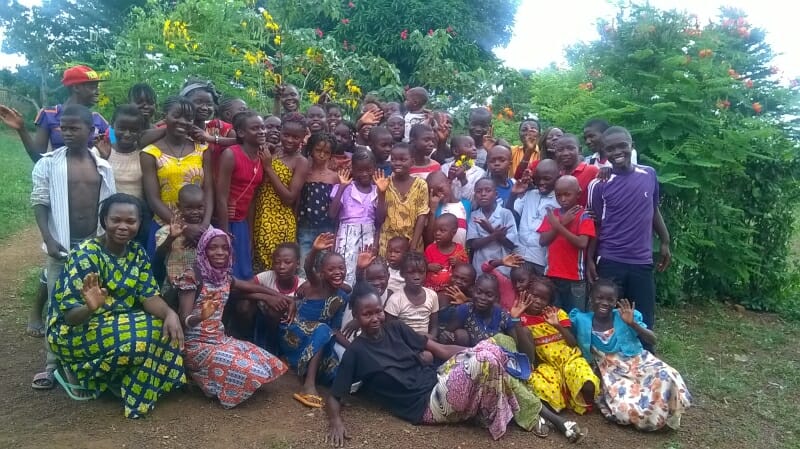
Oct 9, 2015 | Focolare Worldwide
 It is difficult to know the numbers – Misna sources report 60 dead with 300 wounded – and describe the events in a country that has been sinking in political crisis since March 2013 when a group of rebels overthrew the president; and there have been further outbreak in recent days. “The socio-political situation has worsened,” writes Geneviève Sanzé from the Central African Republic. “Christian families live between the house and the forest, so that they won’t be discovered at home and lose their lives. One priest, who lives in the north where the situation is quite serious, is offering shelter to 12,000 refugees in his parish, who are taking refuge from projectiles that are being launched all around them. He doesn’t know how he will care and find food for them. There is no more adminstrative , political or military authority in the region, and there is the constant danger of bombs in crowded areas.” From the Focolare of Bangui they write: “We were preparing to do something concrete to help promote the peace that our country is so much in need of: a sport competition with mixed teams of Christians and Muslims; a march for reconcilliation comprised of all sorts of ethnic and religious groups; a concert by several musical groups, including our own to help sway public opinion towards the need for peace; continuing visits to refugees here in Bangui and in the prison. We invited our Muslim friends and friends from different Christian churches to take part in organising these and other events, and they enthusiastically accepted.” “The first event had been planned for the 26th of September, but was not held because of a massacre that taken place here in Bangui on that day,” recounts Berndadine who works at the Nunciature. “It all began with the discovery of the lifeless body of a young Muslim woman in a Christian area. But the murderer and the circumstances surrounding the death are still unknown. In the span of a few hours non-Muslim homes were attacked, and many people were killed.” Death is everywhere, looting, destruction of houses, churches, schools, offices of international organisations and many displaced persons, including several from the Focolare community. Some have lost close relatives. They write: “We encourage each other to love, each one of us wherever we are, ready to die for our own people. Pray with us, for us and for everyone living in similar situations.” The city has seemed dead for days. “You didn’t go to work,” wrote Bernardine. “The shops were closed, the only vehicles on the street were those of the United Nations and the French Military. The population organised a protest calling everyone to civil disobedience, demanding the restoration of the national military to protect the people. More people died during the manifestation and everything stopped. Things have improved a bit in recent days, we’ve resumed some of our activities, although schools are still closed. We’re in God’s hands and we always believe in His love. Sooner or later there will even be peace in the Central African Republic.” And this hope is supported by the upcoming visit of the Pope in late November. Fidelia, from the focolare in Bangui, recounts: “The entire population, regardless of ethnic or religious group, joyfully awaits his coming. You can feel it in the air, that the people are expecting him as the bearer of hope. Everyone is preparing spiritually and materially in order to be disposed to welcome the graces that Pope Francis’s visit will bring.”
It is difficult to know the numbers – Misna sources report 60 dead with 300 wounded – and describe the events in a country that has been sinking in political crisis since March 2013 when a group of rebels overthrew the president; and there have been further outbreak in recent days. “The socio-political situation has worsened,” writes Geneviève Sanzé from the Central African Republic. “Christian families live between the house and the forest, so that they won’t be discovered at home and lose their lives. One priest, who lives in the north where the situation is quite serious, is offering shelter to 12,000 refugees in his parish, who are taking refuge from projectiles that are being launched all around them. He doesn’t know how he will care and find food for them. There is no more adminstrative , political or military authority in the region, and there is the constant danger of bombs in crowded areas.” From the Focolare of Bangui they write: “We were preparing to do something concrete to help promote the peace that our country is so much in need of: a sport competition with mixed teams of Christians and Muslims; a march for reconcilliation comprised of all sorts of ethnic and religious groups; a concert by several musical groups, including our own to help sway public opinion towards the need for peace; continuing visits to refugees here in Bangui and in the prison. We invited our Muslim friends and friends from different Christian churches to take part in organising these and other events, and they enthusiastically accepted.” “The first event had been planned for the 26th of September, but was not held because of a massacre that taken place here in Bangui on that day,” recounts Berndadine who works at the Nunciature. “It all began with the discovery of the lifeless body of a young Muslim woman in a Christian area. But the murderer and the circumstances surrounding the death are still unknown. In the span of a few hours non-Muslim homes were attacked, and many people were killed.” Death is everywhere, looting, destruction of houses, churches, schools, offices of international organisations and many displaced persons, including several from the Focolare community. Some have lost close relatives. They write: “We encourage each other to love, each one of us wherever we are, ready to die for our own people. Pray with us, for us and for everyone living in similar situations.” The city has seemed dead for days. “You didn’t go to work,” wrote Bernardine. “The shops were closed, the only vehicles on the street were those of the United Nations and the French Military. The population organised a protest calling everyone to civil disobedience, demanding the restoration of the national military to protect the people. More people died during the manifestation and everything stopped. Things have improved a bit in recent days, we’ve resumed some of our activities, although schools are still closed. We’re in God’s hands and we always believe in His love. Sooner or later there will even be peace in the Central African Republic.” And this hope is supported by the upcoming visit of the Pope in late November. Fidelia, from the focolare in Bangui, recounts: “The entire population, regardless of ethnic or religious group, joyfully awaits his coming. You can feel it in the air, that the people are expecting him as the bearer of hope. Everyone is preparing spiritually and materially in order to be disposed to welcome the graces that Pope Francis’s visit will bring.”
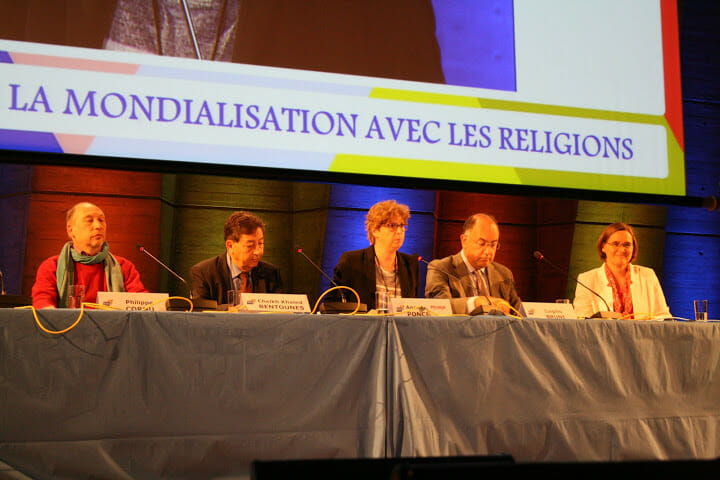
Oct 7, 2015 | Focolare Worldwide
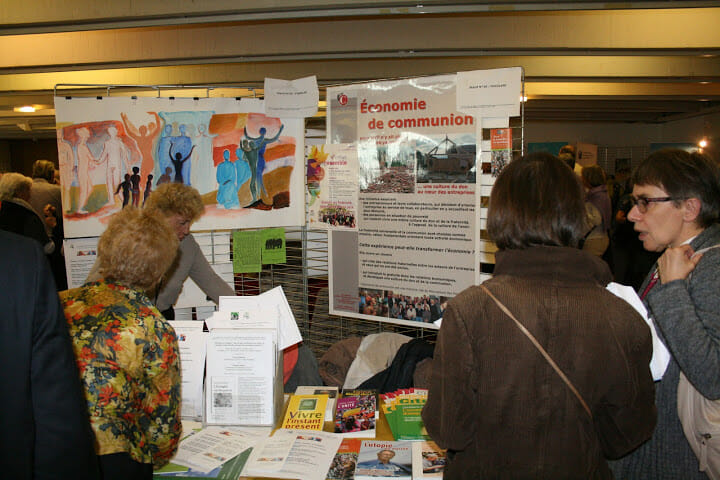
© Focolari-Alain Boudre
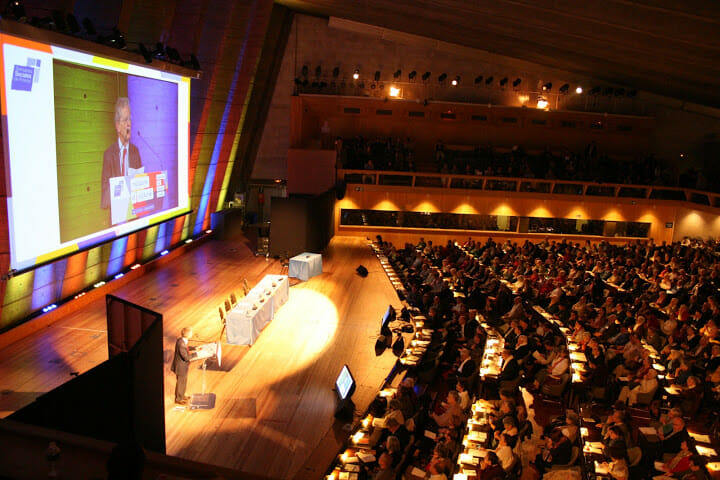
© Focolari-Alain Boudre

© Focolari-Alain Boudre
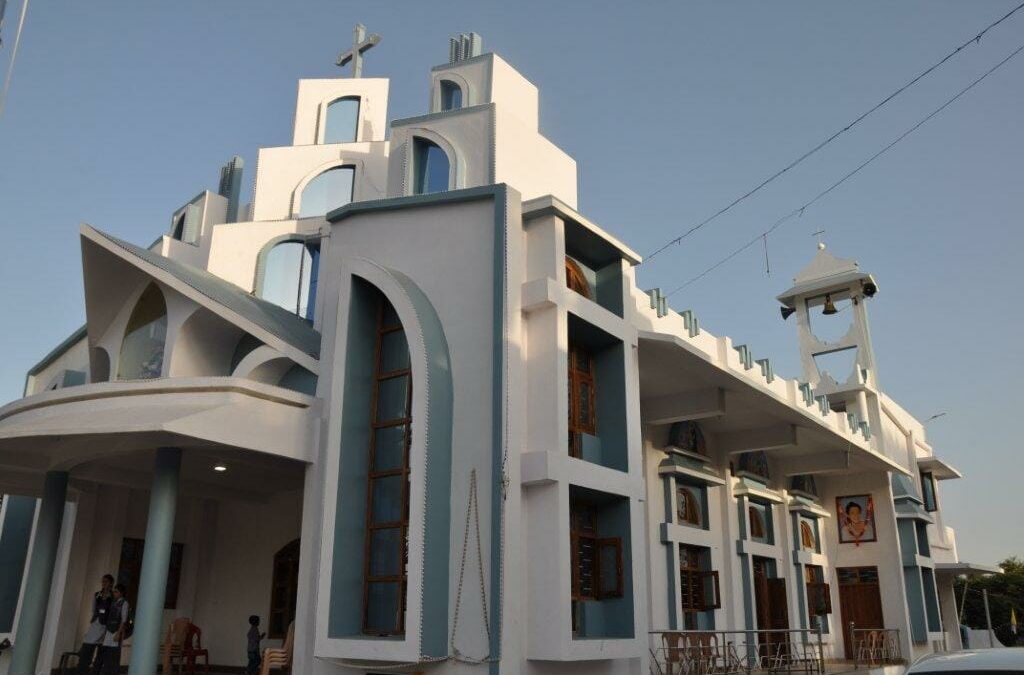
Oct 7, 2015 | Focolare Worldwide
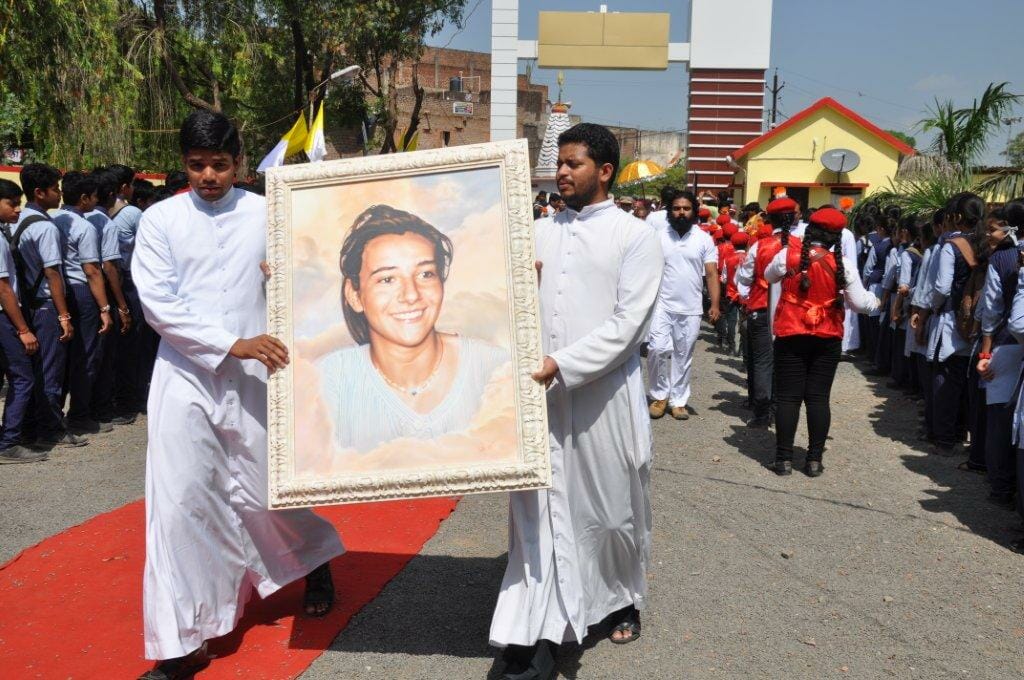 Msgr. Anthony Chirayath, bishop of the Syro-Malabar diocese of Sagar, consecrated the new church in the presence of the parents of Chiara Luce Badano, saying it was “an inspiration to all students in the country”. The couple arrived from Italy for the occasion at the invitation of the bishop. Many faithful and young students of local high schools, as well as groups of adherents to the Focolare Movement from Mumbai and Delhi, attended the ceremony.
Msgr. Anthony Chirayath, bishop of the Syro-Malabar diocese of Sagar, consecrated the new church in the presence of the parents of Chiara Luce Badano, saying it was “an inspiration to all students in the country”. The couple arrived from Italy for the occasion at the invitation of the bishop. Many faithful and young students of local high schools, as well as groups of adherents to the Focolare Movement from Mumbai and Delhi, attended the ceremony. 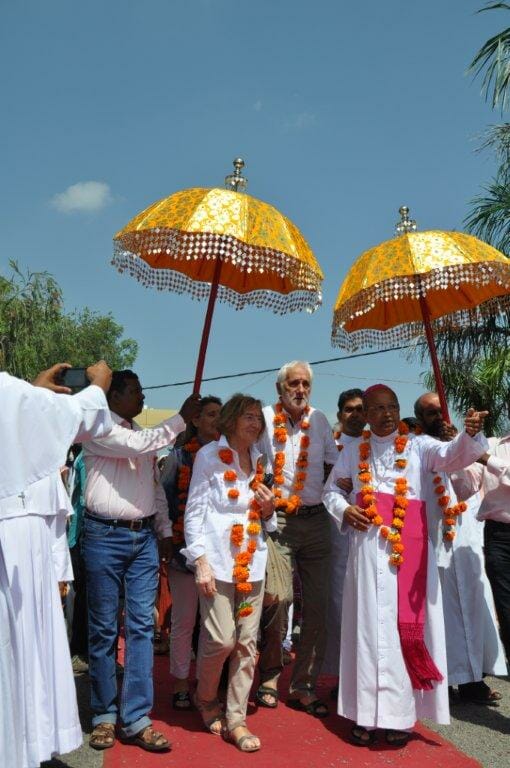 Chiara Badano, named Chiara “Luce” by Chiara Lubich, founder of the Movement (or Work of Mary), was a young Italian, who died at the age of 18 from aggressive bone cancer. She was beatified on 25 September 2010 by Pope Benedict XVI, who acknowledged her heroic virtues and tireless work for the poor, despite the pain of the disease from which she suffered. The Sironi church was dedicated to the Blessed at the express will of Msgr. Chirayath, who learned of the life of Chiara Luce during one of his trips in Italy. Keeping in mind the large youth population that resides in the Indian town and who attend the prestigious English schools in the district, Bishop Sagar sensed that Chiara’s life could serve as an “example and inspiration for students.” The celebrations were attended by Maria Teresa and Ruggero, the parents of the young Blessed, accompanied by her best friend Chicca Coriasco and her brother Franz Coriasco, who wrote Chiara Luce’s biography. Approximately 1,000 participants attended, including priests, religious, seminarians, teachers, high school students and young Focolare members, who organised performances to celebrate the event.
Chiara Badano, named Chiara “Luce” by Chiara Lubich, founder of the Movement (or Work of Mary), was a young Italian, who died at the age of 18 from aggressive bone cancer. She was beatified on 25 September 2010 by Pope Benedict XVI, who acknowledged her heroic virtues and tireless work for the poor, despite the pain of the disease from which she suffered. The Sironi church was dedicated to the Blessed at the express will of Msgr. Chirayath, who learned of the life of Chiara Luce during one of his trips in Italy. Keeping in mind the large youth population that resides in the Indian town and who attend the prestigious English schools in the district, Bishop Sagar sensed that Chiara’s life could serve as an “example and inspiration for students.” The celebrations were attended by Maria Teresa and Ruggero, the parents of the young Blessed, accompanied by her best friend Chicca Coriasco and her brother Franz Coriasco, who wrote Chiara Luce’s biography. Approximately 1,000 participants attended, including priests, religious, seminarians, teachers, high school students and young Focolare members, who organised performances to celebrate the event. 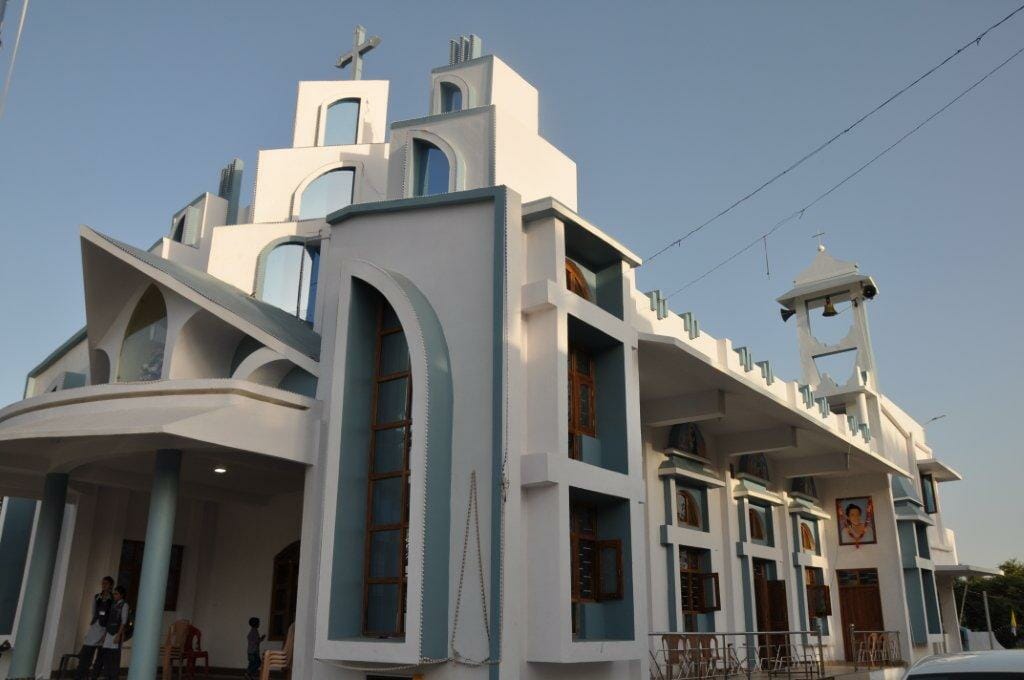 After the inauguration of the church, the parents and friends of Chiara Luce met some members of the Focolare Movement in Mumbai, eager to express their gratitude for the “witness of love and unity”. Also in Mumbai they had a meeting with “Jesusfriends4u”, a youth group inspired by the example of the life of the girl, who awarded the Badano’s the first prize dedicated to their daughter, the Effective Parenting Award. Source: Asia News
After the inauguration of the church, the parents and friends of Chiara Luce met some members of the Focolare Movement in Mumbai, eager to express their gratitude for the “witness of love and unity”. Also in Mumbai they had a meeting with “Jesusfriends4u”, a youth group inspired by the example of the life of the girl, who awarded the Badano’s the first prize dedicated to their daughter, the Effective Parenting Award. Source: Asia News
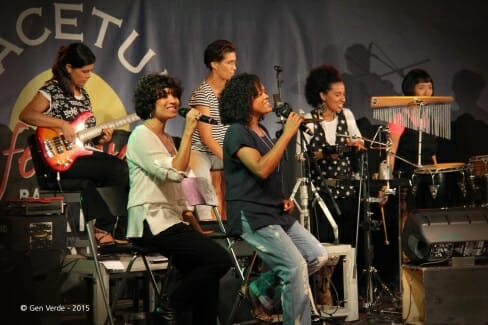
Oct 5, 2015 | Focolare Worldwide, Senza categoria
 “We worked hard. For three years we listened to thousands of people, especially the young people that we met at home or on tour. We composed music and wrote lyrics, but above all strived to live out the meaning of our words: putting ourselves in the game, taking risks, welcoming both the ugly and beautiful in humanity. We can’t wait to go to Great Britain. The one talking is Sally McAllister, Gen Verde’s manager, Irish by birth and English by adoption: “I’ve lived in London for more than 30 years and learnt to know and love the people. So it is with much joy that we are accepting the invitation to return there.” The Focolare has been in Great Britain since 1963, spread throughout many cities of the United Kingdom, and its members are Roman Catholic, Anglican and faithful of the Free Churches. There are also Muslims and Sikhs who, in their own way, are true witnesses of a living unity that is at times lived out painstakingly in daily life. “Why did they invite us,” Sally asks. “The Focolare communities arranged the entire tour:a group of twenty young people and adults, families that are spread throughout the United Kingdom. We dreamed it up and organised it together. They told us that they wanted to open hearts and hands, to recompose relationships, overcome hatreds and distrust: to encounter the people and share the gift of communion in diversity.” “That took courage, and I must say that these people have a good dose of it! We’ll have 12 engagements with a total of 7 “Start Now” shows, 5 acoustic concerts and several other encounters.” Listening to Sally’s words one realises that they are only the tip of the iceberg and that Gen Verde’s musical tour in the United Kingdom is capable of touching a chord with the people. “We’ll go on stage in complex places like London, Birmingham, Glasgow, Oxford, Liverpool, Portsmouth and Cardiff,” Sally explained, “with a social and cultural fabric that has been defined as post-Christian and disintegrating, but where ecumenical and interreligious dimensions are still strong. Through the music, words and choreography we will describe the life amongst us and many other parts of the world: a life of communion, fraternity, sacrifice and reciprocity. We would like to show the ‘much more’ that is already there but not being spotlighted by British society; what is being done for others but risks remaining hidden behind media titles that often broadcast exclusion, defensiveness and fear.” In London, Gen Verde will also meet young people from the Islamic Centre, invited by Imam Dr. Mohammad Ali Shomali. “Let us focus on the values that unite us and and work together.” Judging by the passion that Sally is putting into this, it is obvious that young people will have the place of honour during this tour: “They are the thermometer of society, they often live in the darkest depths and it is no mystery that even Great Britain, like other European countries, violence and suicides are very much on the rise amongst people under 30. The new show that will go on stage in Great Britain will also include some new pieces “On the Other Side,” their latest released album. “It is geared towards young people and its themes are universal. It presents a journey in four parts: We begin with the challenges, the deep ones, the ones that make you look into yourself. Then comes the question: Is it even possible to overcome them? Finally, there is the invitation to go out and build the present and the future together, and this part is called “No frontiers,” because together we can make the difference.” See official Focolare website for news and events: www.focolare.org/gb https://www.youtube.com/watch?v=llkkHKzywrM
“We worked hard. For three years we listened to thousands of people, especially the young people that we met at home or on tour. We composed music and wrote lyrics, but above all strived to live out the meaning of our words: putting ourselves in the game, taking risks, welcoming both the ugly and beautiful in humanity. We can’t wait to go to Great Britain. The one talking is Sally McAllister, Gen Verde’s manager, Irish by birth and English by adoption: “I’ve lived in London for more than 30 years and learnt to know and love the people. So it is with much joy that we are accepting the invitation to return there.” The Focolare has been in Great Britain since 1963, spread throughout many cities of the United Kingdom, and its members are Roman Catholic, Anglican and faithful of the Free Churches. There are also Muslims and Sikhs who, in their own way, are true witnesses of a living unity that is at times lived out painstakingly in daily life. “Why did they invite us,” Sally asks. “The Focolare communities arranged the entire tour:a group of twenty young people and adults, families that are spread throughout the United Kingdom. We dreamed it up and organised it together. They told us that they wanted to open hearts and hands, to recompose relationships, overcome hatreds and distrust: to encounter the people and share the gift of communion in diversity.” “That took courage, and I must say that these people have a good dose of it! We’ll have 12 engagements with a total of 7 “Start Now” shows, 5 acoustic concerts and several other encounters.” Listening to Sally’s words one realises that they are only the tip of the iceberg and that Gen Verde’s musical tour in the United Kingdom is capable of touching a chord with the people. “We’ll go on stage in complex places like London, Birmingham, Glasgow, Oxford, Liverpool, Portsmouth and Cardiff,” Sally explained, “with a social and cultural fabric that has been defined as post-Christian and disintegrating, but where ecumenical and interreligious dimensions are still strong. Through the music, words and choreography we will describe the life amongst us and many other parts of the world: a life of communion, fraternity, sacrifice and reciprocity. We would like to show the ‘much more’ that is already there but not being spotlighted by British society; what is being done for others but risks remaining hidden behind media titles that often broadcast exclusion, defensiveness and fear.” In London, Gen Verde will also meet young people from the Islamic Centre, invited by Imam Dr. Mohammad Ali Shomali. “Let us focus on the values that unite us and and work together.” Judging by the passion that Sally is putting into this, it is obvious that young people will have the place of honour during this tour: “They are the thermometer of society, they often live in the darkest depths and it is no mystery that even Great Britain, like other European countries, violence and suicides are very much on the rise amongst people under 30. The new show that will go on stage in Great Britain will also include some new pieces “On the Other Side,” their latest released album. “It is geared towards young people and its themes are universal. It presents a journey in four parts: We begin with the challenges, the deep ones, the ones that make you look into yourself. Then comes the question: Is it even possible to overcome them? Finally, there is the invitation to go out and build the present and the future together, and this part is called “No frontiers,” because together we can make the difference.” See official Focolare website for news and events: www.focolare.org/gb https://www.youtube.com/watch?v=llkkHKzywrM

 «During these years I think I alone visited 50,000 patients,» says Dr. A. Carlo Montaguti, a focolarino doctor and Director of the Social Medical Centre of the little Focolare town in Man, Ivory Coast. «I was a doctor in my country, Italy, but my practice was not so intense. Those who preceded me when there was still the war, told me before my departure: Carlo, if you don’t treat them, no one else will.» The patients arrived also in the night. The health records were compiled in the apatam (shed) in front of the hospital, and then they entered for the medical checkup by any of the three doctors of the centre, one of which is Muslim. The doctors prescribed the lab tests and got the results in about two hours. In a second visit, the diagnosis was done and the treatment prescribed. In the span of a morning one manages to get everything done. «It is not usual to have a lab for analysis in such a small centre in the suburbs,» Carlo continues; «I worked for four years without a lab and it was really difficult.» Luc Dro, head of the laboratory, explained that being in a tropical zone, there is great need for studies on parasites that cause malaria and other endemic diseases, but the lab is able to perform a complete check-up. The centre also has a small pharmacy, where over a 100,000 consultations were registered. «We do all that is possible to put the patients at the core of our work – says Dr. Alavo Bazini – and this explains the great influx. It does not suffice to say “the medicines are free of charge,” if the people are not satisfied. This is where the centre’s originality lies.» When possible, there is also a cultural mediator who translates into the local tongues. «We also have the internet and wi-fi connection – explained Dr. Eliassa Sow – In this way we can do research work and cooperate with other doctors from afar.» Dr. Montaguti continues «I came in 2004 – when the centre consisted of two tiny rooms for visits and one for medications. The people have appreciated our work especially because during the war in 2002, in the most difficult moments when all the foreigners were leaving the country, we decided to stay on, and risk our lives. They understood that we were there for them and this generated their trust. At times it came about that on a Monday, after the weekend break, the patients said: ”Doctor, I tried to endure in order to come to you.” If their situation was not too serious, they preferred to wait another day and suffer a bit more, to be able to come here!» One of the strong points of the centre is also the healthcare team which is involved in the entire care process. When the political-military crisis ended and the situation in the region calmed down, the term of the centre was extended and in 2008 we moved into a new facility. «It seemed like a dream – Carlo recalls – but after two years with the influx of patients – more than 80 a day plus their relatives – quite a crowd! – the old structure could not take any more. And we continued to dream.» And so last 10 October, the new Focolare Social Medical Centre, opened last 7 September, was inaugurated in Man, a stone’s throw from Mariapolis Victoria. It is a modern architecture for a facility of over 1,000 sq. m, with the addition of new services: 15 beds, a dentist’s studio, a physiotherapy room, and new diagnostics equipment (ultrasound scans, hemoglobin electrophoresis and microbiology). In the last days the nutrition centre, previously located in the district of Libreville, was completed and transferred to cure infantile malnutrition..
«During these years I think I alone visited 50,000 patients,» says Dr. A. Carlo Montaguti, a focolarino doctor and Director of the Social Medical Centre of the little Focolare town in Man, Ivory Coast. «I was a doctor in my country, Italy, but my practice was not so intense. Those who preceded me when there was still the war, told me before my departure: Carlo, if you don’t treat them, no one else will.» The patients arrived also in the night. The health records were compiled in the apatam (shed) in front of the hospital, and then they entered for the medical checkup by any of the three doctors of the centre, one of which is Muslim. The doctors prescribed the lab tests and got the results in about two hours. In a second visit, the diagnosis was done and the treatment prescribed. In the span of a morning one manages to get everything done. «It is not usual to have a lab for analysis in such a small centre in the suburbs,» Carlo continues; «I worked for four years without a lab and it was really difficult.» Luc Dro, head of the laboratory, explained that being in a tropical zone, there is great need for studies on parasites that cause malaria and other endemic diseases, but the lab is able to perform a complete check-up. The centre also has a small pharmacy, where over a 100,000 consultations were registered. «We do all that is possible to put the patients at the core of our work – says Dr. Alavo Bazini – and this explains the great influx. It does not suffice to say “the medicines are free of charge,” if the people are not satisfied. This is where the centre’s originality lies.» When possible, there is also a cultural mediator who translates into the local tongues. «We also have the internet and wi-fi connection – explained Dr. Eliassa Sow – In this way we can do research work and cooperate with other doctors from afar.» Dr. Montaguti continues «I came in 2004 – when the centre consisted of two tiny rooms for visits and one for medications. The people have appreciated our work especially because during the war in 2002, in the most difficult moments when all the foreigners were leaving the country, we decided to stay on, and risk our lives. They understood that we were there for them and this generated their trust. At times it came about that on a Monday, after the weekend break, the patients said: ”Doctor, I tried to endure in order to come to you.” If their situation was not too serious, they preferred to wait another day and suffer a bit more, to be able to come here!» One of the strong points of the centre is also the healthcare team which is involved in the entire care process. When the political-military crisis ended and the situation in the region calmed down, the term of the centre was extended and in 2008 we moved into a new facility. «It seemed like a dream – Carlo recalls – but after two years with the influx of patients – more than 80 a day plus their relatives – quite a crowd! – the old structure could not take any more. And we continued to dream.» And so last 10 October, the new Focolare Social Medical Centre, opened last 7 September, was inaugurated in Man, a stone’s throw from Mariapolis Victoria. It is a modern architecture for a facility of over 1,000 sq. m, with the addition of new services: 15 beds, a dentist’s studio, a physiotherapy room, and new diagnostics equipment (ultrasound scans, hemoglobin electrophoresis and microbiology). In the last days the nutrition centre, previously located in the district of Libreville, was completed and transferred to cure infantile malnutrition.. 








